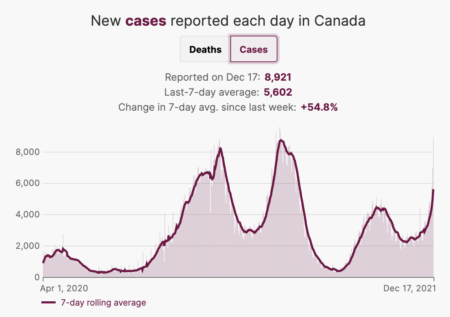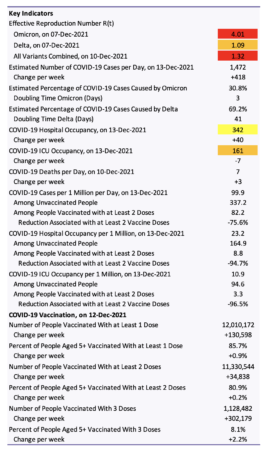Back in the day, I would write some kind of review or response to each book I read, which was useful in several ways. It gave me something short to refer back to in order to refresh my memory, as well as to share with people who might consider reading the book (2 pages on a blog is a much faster read).
It became impossible to continue with at some point in the PhD, either because I had too many books to read or because I didn’t have time to write responses.
Just for fun, here is a list of books I have in progress and how I am generally finding them. These are in no particular order and range from books I received today (Hayhoe) to ones that have been in a pile of reading in progress for several years:
Katharine Hayhoe. Saving Us: A Climate Scientist’s Case for Hope and Healing in a Divided World. 2021: Reading because Hayhoe is a prominent voice in climate education and communication, with a focus on reaching out to groups not naturally aligned to the progressive agenda which saturates most climate activist groups
Allen Dulles. The Craft of Intelligence: America’s Legendary Spy Master on the Fundamentals of Intelligence Gathering for a Free World. 2016: Mentioned/recommended in several International Spy Museum Spycast podcasts and video lectures
John Le Carré. A Most Wanted Man. 2008: I love the 2014 film directed by Anton Corbijn and starring Philip Seymour Hoffman; I think this is Le Carré’s most engaging story because of the diversity of the people involved — they aren’t all just a bunch of grey spooks
Robert L. Jaffe an Washington Taylor. The Physics of Energy. 2018: Many people writing and organizing about climate change don’t know much about energy. This MIT textbook goes too far into the math for me on many occassions, but is an excellent general introduction to how energy works in our society.
Willy Ley. Rockets, Missiles, and Men in Space. 1968: I picked this up used because a few skimmed pages looked promising – turns out to be a highly interesting account of early rocket and space flight
Daniel Kahneman. Thinking Fast and Slow. 2011: A good summary of some of the cognitive science related to environmental and climate politics, but a bit hard to get through when I have seen the main ideas summarized and repeated in so many places already.
Aisha Ahmad. Jihad & Co: Black Markets and Islamist Power. 2017: A great example of scholarly writing well-written and concise enough to be accessible to an interested amateur audience – rich with personal experiences, and providing a very different perspective on what gives rise to Islamist theocratic governments
Herman Melville. Moby Dick. 1851: Recommended as a friend’s favourite — much easier to read than its fearsome reputation as a difficult book made me expect
Andrew Darby. Harpoon: Into the Heart of Whaling. 2008: Informative and well-written, but too depressing to finish. People really are awful
Simon Garfield. On the Map: A Mind-Expanding Exploration of the Way the World Looks. 2013: Not much new information for someone who has already read a bit on the subject, but well-grounded in images and descriptions of real maps
Oliver Morton. The Planet Remade: How Geoengineering Could Change the World. 2015: I loved Eating the Sun, but this one is too depressing to finish
Shi-Ling Hsu. The Case for a Carbon Tax: Getting P{ast Our Hang-Ups to Effective Climate Policy. 2011: Recommended at some point in my PhD research, but covers little new ground for someone who has followed the topic of carbon pricing closely
David Keith. A Case for Climate Engineering. 2013. Reading it to engage with the question of whether geoengineering is sensible to pursue — tiny but too depressing to finish
Diane Vaughan. The Challenger Launch Decision: Risky Technology, Culture, and Deviance at NASA. 1996: Relevant for my Space Shuttle screenplay and also a fascinating analysis of organizational culture — applicable to everyone working on something hard and dangerous
William Perry and Tom Collina. The Button: The New Nuclear Arms Race and Presidential Power from Truman to Trump. 2020: Speaks to my long-term interest in avoiding accidental or unauthorized nuclear weapon use
Seth Klein. A Good War: Mobilizing Canada for the Climate Emergency. 2020: Widely discussed in activist circles, but frustrates me with two persistent types of superficial analysis, basically assuming that because WWII and climate change were big important challenges the effort against the latter can be helpfully modelled on the former, and accepting cost-free notional answers from people who want to come across as good to pollsters as strong evidence for a desire for radical political change
E.H. Carr. What is History? 1961: Read partly to wrestle with questions of disciplinary boundaries and methodological orientation in political science
James R. Hansen. First Man: The Life of Neil A. Armstrong. 2005: I loved the film when I saw it with Holly, and astronaut biographies and autobiographies are one of the best parts of my screenplay research
Those are the ones that I am at least partway into and which I can find readily around the room. I should probably apply more discipline and self-control to not obtaining additional books while these are all still pending.


